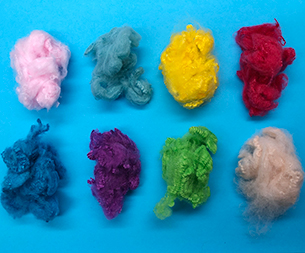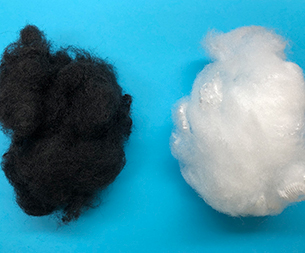In the process of deep integration into the global industrial chain, China's textile enterprises actively explore the road to low-carbon development. According to the data released by the China Textile Industry Federation, as of May 30, 23 brand enterprises and 42 manufacturing enterprises have joined the "China Fashion Brand Climate Innovation Carbon Neutral Acceleration Plan" to jointly promote the textile industry to achieve the "double carbon" goal.
Textile industry is an important livelihood industry. As the world's largest textile and garment producer and exporter, China's chemical fiber, yarn, cloth and other output has ranked first in the world. In 2022, the total amount of fiber processing in China's textile industry will exceed 60 million tons, accounting for more than half of the global proportion; Textile and garment exports totaled 340.95 billion US dollars, accounting for more than one third of the world's total. At the same time, the textile industry is also environmentally sensitive. In the process of production and processing, spinning, weaving, printing and dyeing, clothing, and finishing involve equipment energy consumption, material treatment, waste emissions, etc., which will produce carbon emissions.
In recent years, the relevant departments have issued a series of policies to promote the green development of the textile industry, and the China Textile Industry Federation has actively promoted the action of industry enterprises and industrial clusters. Many companies are continuing to make green changes, with 83 percent of those participating in the China Fashion Brand Climate Innovation Carbon Neutral Acceleration Program setting climate targets. However, it is also necessary to see that textile enterprises have not completely got rid of the status quo of high energy consumption and high emissions, and the annual emissions of greenhouse gases in China's textile and garment industry are about 230 million tons. Therefore, we should attach great importance to the green development of the industry, and effectively take effective measures to enhance the "green content" of the textile industry from multiple aspects such as technology, supply chain and market.
Promoting innovation in green and low-carbon technologies. Science and technology are the primary productive forces, and green technology innovation contains high growth and strong empowerment. It is necessary to promote technological progress in the textile field, increase the research and development and promotion of green and low-carbon technologies, improve relevant systems and mechanisms, pay close attention to the deployment of cutting-edge and key technology research, promote the realization of major breakthroughs, and empower green with digital intelligence.
Build a green and low-carbon supply chain. The textile industry covers raw materials manufacturing, textile manufacturing, clothing production and other links, and the green change of the industry is a long-term cause and systematic project. It is necessary to support leading enterprises in the textile industry to play a leading role in key areas such as supply chain integration and innovative low-carbon management, run the green and low-carbon concept through the whole process of product design, raw material procurement, production, transportation, storage, use, and recycling, accelerate the construction of a unified green product certification and identification system, and promote the green and low-carbon development of the whole chain of the supply chain.
Give full play to the power of small and medium-sized enterprises. Individual small and medium-sized enterprises energy resource consumption and greenhouse gas emissions are relatively small, but because of the large number of small and medium-sized enterprises in China, the amount of carbon emissions can not be ignored. Small and medium-sized enterprises are an important force for the high-quality development of the textile industry, and they are also the main force for the textile industry to achieve carbon peak and carbon neutrality. Giving full play to the comprehensive advantages of industry specialized special new enterprises and the positive role of small and medium-sized enterprises in innovation is of great significance for the realization of green transformation and low-carbon development of the industry.
Declaration: The content of this article is organized from the Internet, and the copyright belongs to the original author; If there is infringement, please inform in time and contact to delete.
- Polypropylene staple fiber is wi
- How to better exert the power of
- The characteristics of all aspec
- Internet technology changes cons
- Polypropylene staple fiber proce
- The traditional peak season has
- The performance advantages of Hy
- Operation analysis of China's in
- What factors are Polypropylene s
- From January to August this year
- Markets
- Automotive Products
- Nonwoven Lining
- Geosynthetics
- Liquid Filtration
- Apparel and Textiles
- Hygiene Products
- Building and Construction
- Other Markets
- Contact Us
- Contact Haibang





